




The University of Canberra, where the Sixth Deliberative Democracy Summer School was held, acknowledges the Ngunnawal people, traditional custodians of the lands where the university’s Bruce Campus is situated.
UC acknowledges and respects their continuing culture and the contribution they make to Canberra and the region. UC also acknowledges all other First Nations people on whose land we gather. Sovereignty has never been ceded. It always was, and always will be, Aboriginal land.
The Centre for Deliberative Democracy and Global Governance (CDDGG) is the world-leading unit for scholarly and applied research in deliberative governance and democratic innovations. We are based in the Faculty of Business, Government and Law at the University of Canberra.
Our researchers bring together diverse fields of expertise, and collectively we advance a common research agenda that examines how deliberation can empower people to shape political decisions that affect their lives. We examine the ways in which political deliberation and discourse can be reasonable, reflective, and inclusive, and share these aspirations in both our research and teaching practices.



Over the course of three days, leading academics and talented PhD students from around the world delved into deliberative democracy’s most pressing issues, including global challenges on the climate emergency, pandemics and populism. The event provided a unique opportunity to discuss emerg-

ing themes, empirical findings and methodological innovations in deliberative democracy research, on a wide range of topics such as deliberative systems, mini-publics, social movements, transnational deliberation, non-human deliberation to feminist and decolonial deliberation.
The 2024 summer school was held from 7-9 February at the Ann Harding Conference Centre, University of Canberra. The event was generously supported by the Office of the Deputy Vice Chancellor for Research and Innovation and the Faculty of Business, Government and Law.
For the 2024 edition, Canberra welcomed a vibrant international gathering of twenty-five participants from sixteen countries.

Seraphine Arnold University of Stuttgart

Wendy Conway-Lamb University of Canberra

Bryan Lee Celeste The University of Newcastle

Roger Davis University of Canberra

Noemi Cipriano Scuola Normale Superiore

Hong Do Central European University

Madeliene Egan University of Canberra

Daragh Hamilton Central European University

Charles Ladia University of the Philippines Diliman

Olivia S. Mendoza University of Canberra

Hannah Forde University of Oxford

Anne Nygaard Jedzini University of Canberra

Nadine Malmberg Hollmann Aarhus University

Phoebe Quinn University of Melbourne

Iñaki Goñi University of Edinburgh

Raj Kaithwar University of New South Wales

Joanna Massie McMaster University

Emanuela Savini University of Technology Sydney

Vanessa Schwaiger University of Stuttgart

Nivek Thompson University of Technology Sydney

National Law School of India University

The University of British Columbia
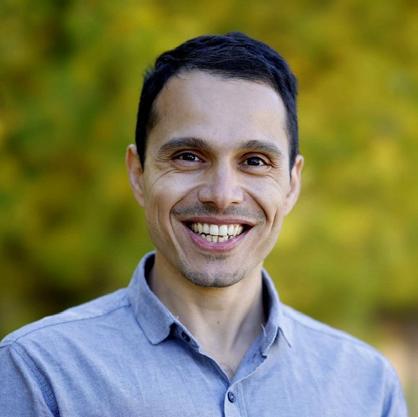
Federal University of Minas


The summer school was led by a high-profile teaching team consisting of some of the leading international scholars in the field of deliberative democracy research.

Jane
University of Canberra


University of Canberra




John Dryzek University of Canberra
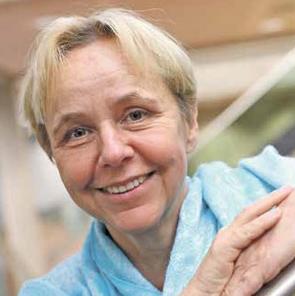
Brigitte Geissel Goethe University Frankfurt

Daniel Kübler University of Zurich

Ricardo Fabrino Mendonça Federal University of Minas Gerais

Selen A. Ercan University of Canberra

Frederic Hanusch Justus Liebig University Giessen

Mikko Leino University of Turku

Simon Niemeyer University of Canberra

Jean-Paul Gagnon University of Canberra

Carolyn Hendriks Australian National University

Jordan McSwiney University of Canberra

PerOla Öberg Uppsala University

Jonathan
University of Canberra
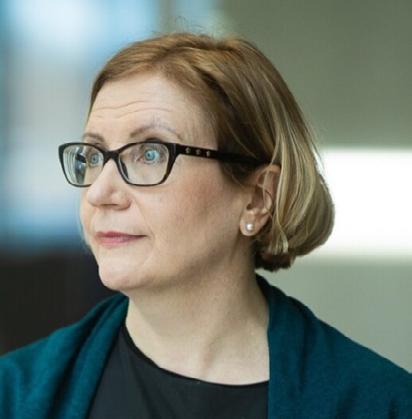
University of Turku

Melisa
University of Bremen



Australia
Hans Asenbaum, University of Canberra
Paul Collis, University of Canberra
Nicole Curato, University of Canberra
John Dryzek, University of Canberra
Selen A. Ercan, University of Canberra
Carolyn Hendriks, Australian National University
Jordan McSwiney, University of Canberra
Simon Niemeyer, University of Canberra
Adele Webb, University of Canberra
Mohammad AbdulHwas, University of Canberra
Bryan Lee Celeste, The University of Newcastle
Wendy Conway-Lamb, University of Canberra
Roger Davis, University of Canberra
Madeliene Egan, University of Canberra
Anne Nygaard Jedzini, University of Canberra
Raj Kaithwar, University of New South Wales
Olivia S. Mendoza, University of Canberra
Phoebe Quinn, University of Melbourne
Emanuela Savini, University of Technology Sydney
Nivek Thompson, University of Technology Sydney
Jane Alver, University of Canberra
Jonathan Pickering, University of Canberra
Jean-Paul Gagnon, University of Canberra
Hong Do, Central European University
Ricardo Fabrino Mendonça, Federal University of Minas Gerais
Lucas Veloso, Federal University of Minas Gerais
Rikki Dean, Goethe University Frankfurt
Brigitte Geissel, Goethe University Frankfurt
Frederic Hanusch, Justus Liebig University Giessen
Melisa Ross, University of Bremen
Edana Beauvais, Simon Fraser University
Melissa Williams, University of Toronto
Joanna Massie, McMaster University
Erik Severson, The University of British Columbia
Nadine Malmberg Hollmann, Aarhus University
Seraphine Arnold, University of Stuttgart
Vanessa Schwaiger, University of Stuttgart
Mikko Leino, University of Turku
Maija Setälä, University of Turku
Pragya Yadav, National Law School of India University
Noemi Cipriano, Scuola Normale Superiore
Magni SzymaniakArnesen, Adam Mickiewicz University
Hannah Forde, University of Oxford
Iñaki Goñi, University of Edinburgh
Maria Fernanda Diaz Vidal, University of Edinburgh
Ireland
Daragh Hamilton, Central European University
PerOla Öberg, Uppsala University
Charles Ladia, University of the Philippines Diliman
Daniel Kübler, University of Zurich
Mary F. (Molly) Scudder, Purdue University

The summer school brings together postgraduate students and early career researchers with leading scholars in the field of deliberative democracy. It aims to foster a safe, supportive and interactive space where participants can present their ongoing work and receive valuable feedback. The programme reflects these aims.
The summer school opened with a walking tour around indigenous sites on campus. Participants listened to Barkindji scholar Paul Collis as he shared insights on the deep importance of nature to Australian First Nations heritage. The tour culminated in the Ngaladjimas Gardens which hosts UC’s native plant collection.



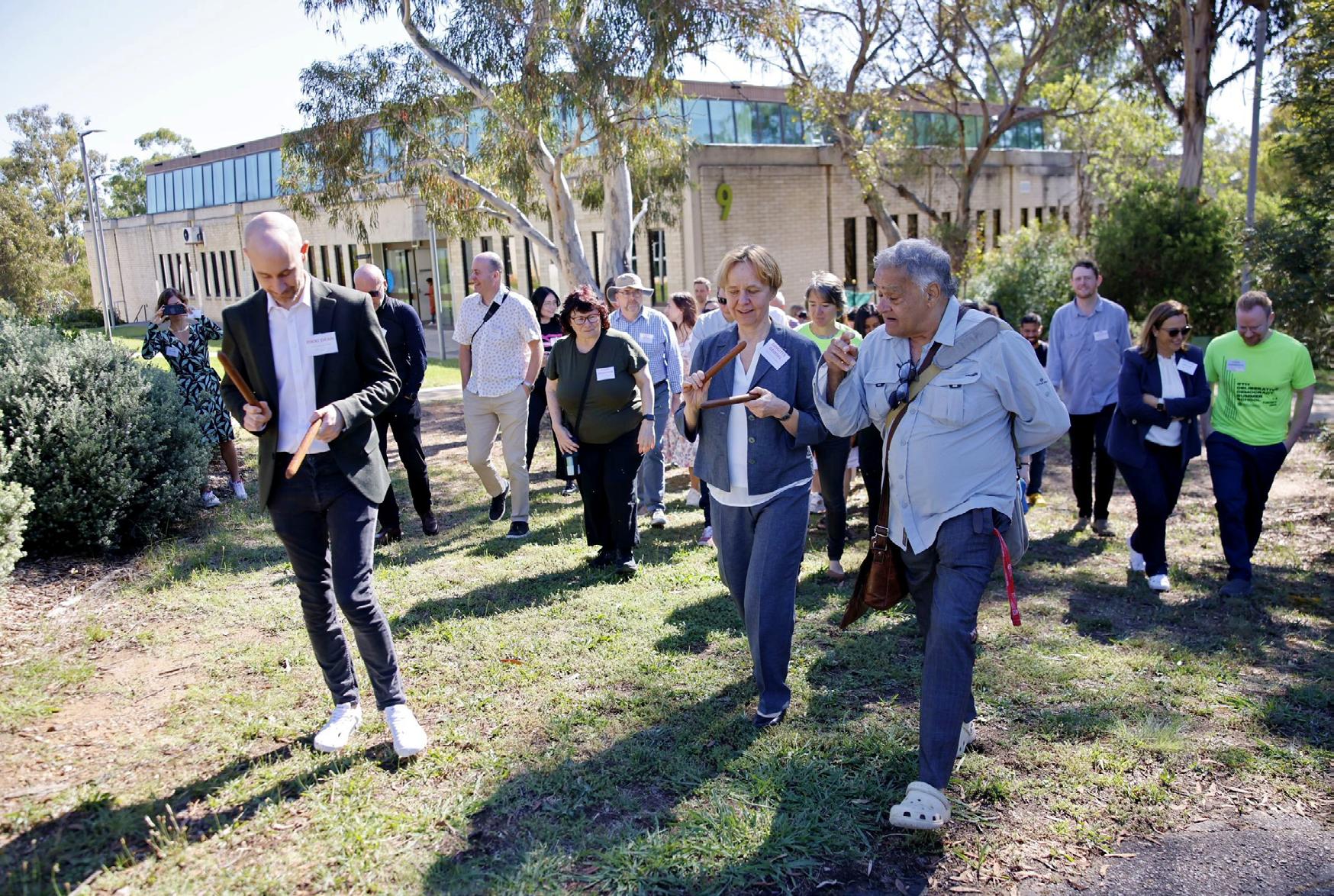

The Faculty of Business, Government and Law’s Executive Dean, Uwe Dulleck, and Summer School Convenor, Hans Asenbaum, officially open the event.
John Dryzek reflects on the development of the field of deliberative democracy from its emergence to current trends. The opening ceremony was hosted by Centre Director, Selen A. Ercan.

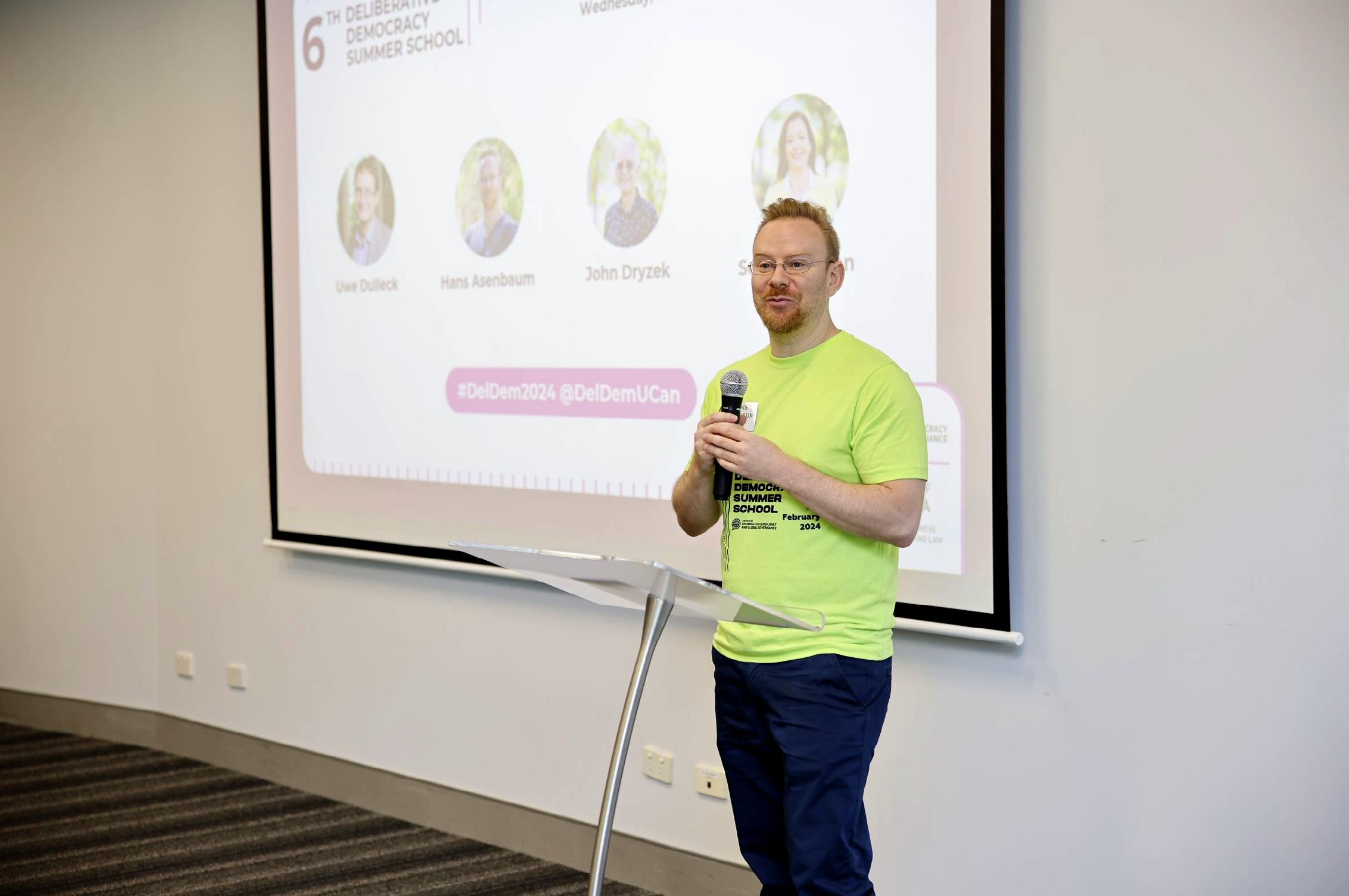




Melissa Williams (University of Toronto) delivered the keynote address on “Democratic Equality and Structural Injustice: From Deliberative Democracy to Abolition-Democracy?” This was followed by a conversation with Nicole Curato, which was chaired by John Dryzek.


The summer school provided a wide array of mentoring opportunities, from publishing tips, to methods in researching deliberative democracy, to navigating academia.

The workshop provided practical tips on how to frame an article and get it through peer review. Editors Hans Asenbaum (Journal of Deliberative Democracy), Jean-Paul Gagnon (Democratic Theory), Jordan McSwiney (Australian Journal of Political Science) gave insights into their editorial practice and answered participants questions. The workshop was chaired by Nicole Curato.
Drawing on the open access book Research Methods in Deliberative Democracy, this world café format allowed participants to learn about a broad variety of methods to study deliberative democracy. Molly Scudder introduced “Deliberative Listening Index,” Ricardo Fabrino Mendonça “Frame Analysis,” Carolyn Hendriks, “Dramaturgical Analysis,” and Jonathan Pickering “Process Tracing”. The workshop was chaired by one of the book’s editors, Selen A. Ercan.









Should academics be advocates for deliberative forms of citizen engagement or should we step back as objective observers of deliberative democracy in action? How can democracy be “future-proofed”? In the roundtable discussions, summer school participants critically reflected on the purpose and impact of research on deliberative democracy, and the potential futures of the scholarly field and practice of deliberative democracy.






Summer school participants were matched with a senior mentor from the teaching team who provided advice on specific challenges mentees face while working on their individual projects, as well as on navigating the field of deliberative democracy and academia more broadly.






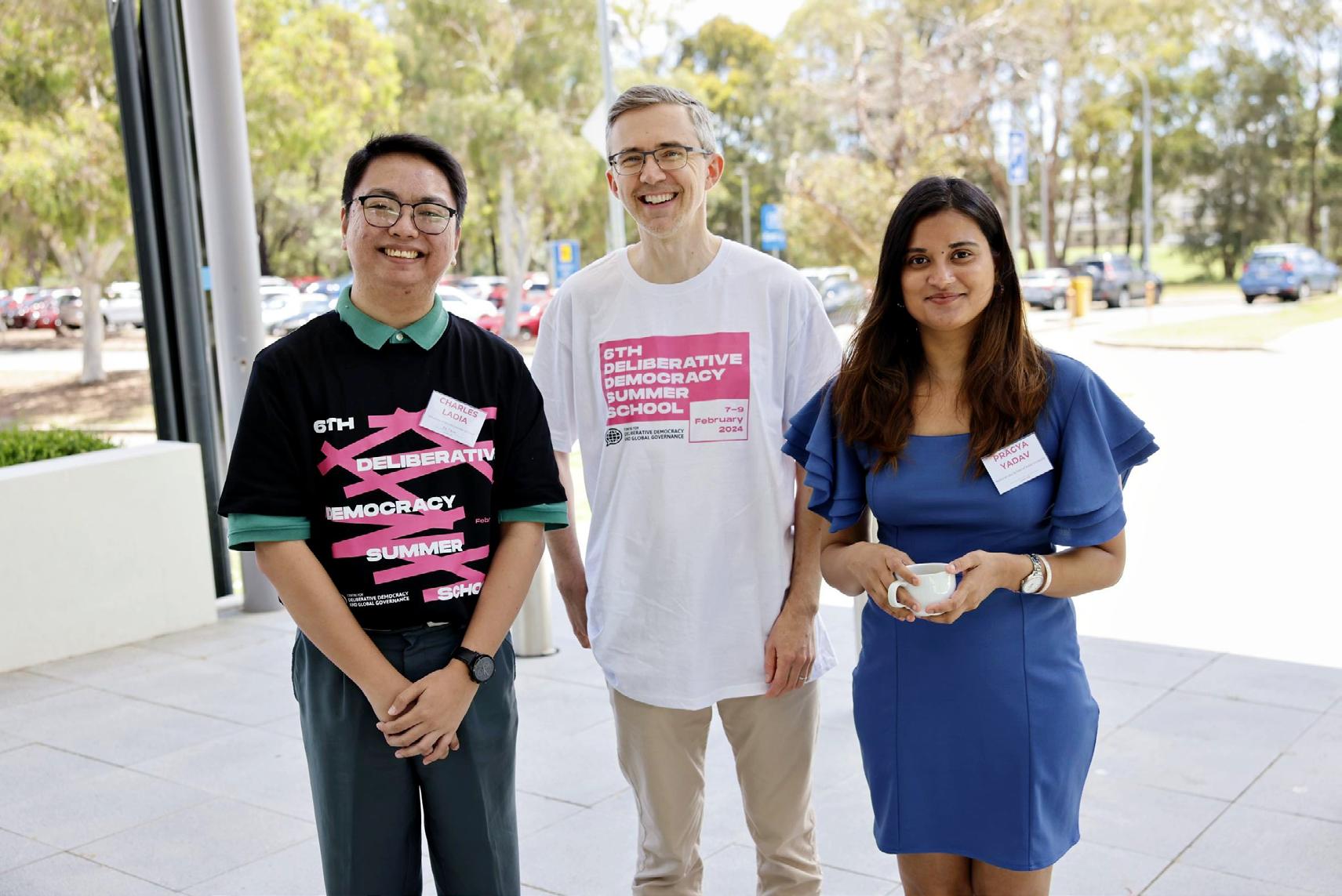
Nine panel sessions showcased the diversity of research topics of PhD students and early career scholars in deliberative democracy. Panel presentations were organised around themes of digital democracy, deliberation in the Global South, mini-publics, climate change, deliberative policymaking, democratic innovations, constitution-making, indigenous deliberation, local governments, and gendered and embodied resistance.


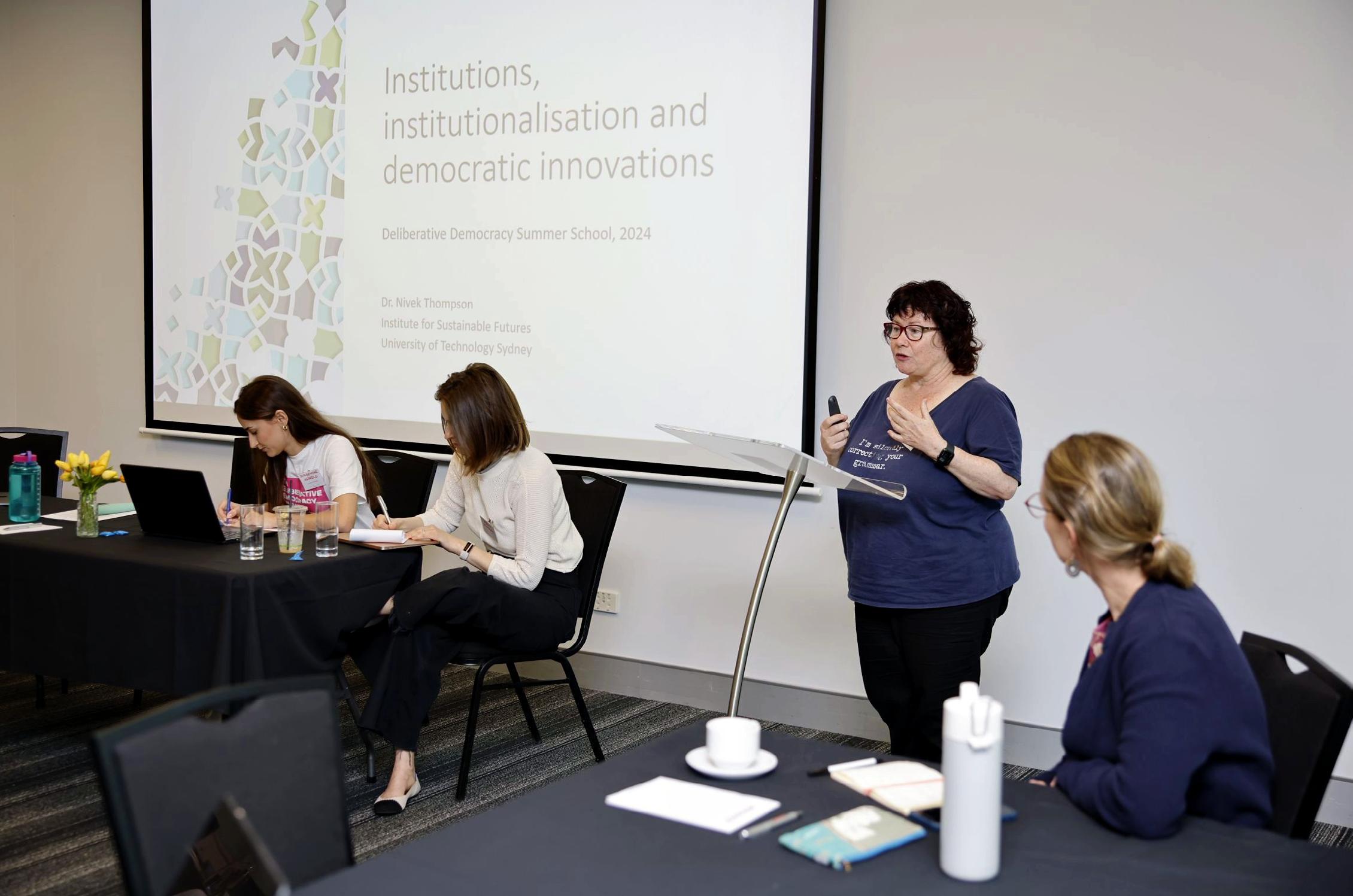






What metaphor best captures the state and future of deliberative democracy? Summer school participants and speakers brainstormed and shared their insights. The reflections were visualised by Canberra-based creative Arran McKenna.



To close the summer school, PerOla Öberg (Uppsala University), Edana Beauvais (Simon Fraser University), Daniel Kübler (University of Zurich) and Mikko Leino (University of Turku) shared their reflections and highlights. This session was accompanied by a visual recorder. This concluding roundtable discussion was chaired by Summer School Convenor, Hans Asenbaum.
 Maria Fernanda
Diaz Vidal
University of Edinburgh
Maria Fernanda
Diaz Vidal
University of Edinburgh
My experience during the Summer School was fantastic, both intellectually and personally. I was able to develop my ideas and thoughts regarding my PhD research project. I also met so many wonderful new people and friends whom I’ll be taking with me into the future.
 Erik Liam Severson
The University of British Columbia
Erik Liam Severson
The University of British Columbia
It has been an incredible experience because it brings people together who are just trying to figure it out and people who have figured it out in many ways. There’s mentorship and they will talk to you. Everybody that I have met here I have become really close friends with even in just a couple of days.
 Raj Kaithwar
Raj Kaithwar
University of New South Wales
My key takeaway is what I learned from the people at the school itself that’s about being respectful and caring while conducting your research. So that goes beyond research and more personal relations and that’s something. It’s really nice to see senior scholars sitting face to face with junior PhDs those who are just starting their PhD and getting constructive feedback.
 Seraphine Arnold University of Stuttgart
Seraphine Arnold University of Stuttgart
The organizers really did an incredible job because they really made sure that we felt welcome. They often checked back at us, and they were just so warm and welcoming and thoughtful towards us. They really succeeded in creating this space where everyone feels comfortable, and their voices heard even as early career.
 Melisa Ross University of Bremen
Melisa Ross University of Bremen
Part of the experience that I valued in this Summer School has been the fact that we have a rather diverse crowd. I think the community coming to the Summer School has been growing in past years and it’s becoming more diverse. There’s more people coming from Global South countries and I think it really improves the quality and kind of conversation we are having.
 Molly Scudder Purdue University
Molly Scudder Purdue University
It’s has been incredible to be part of the Summer School, to be with these brilliant PhD students and postdocs who are sharing their work and energizing dialogue we all had. The main takeaway that’s so impressive to me is for how many people the Centre for Deliberative Democracy and Global Governance is a home and for people who had been here before it feels like a home coming. It’s a place that means so much to so many people from across the globe.
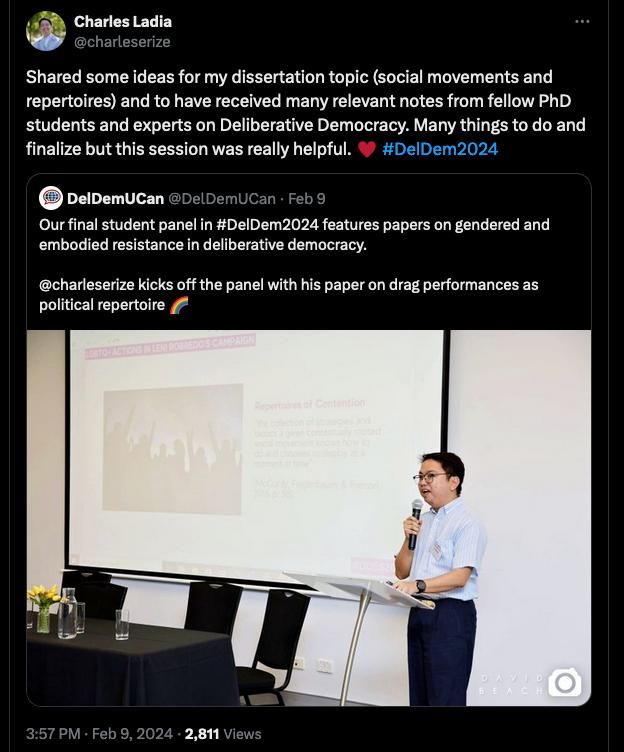

















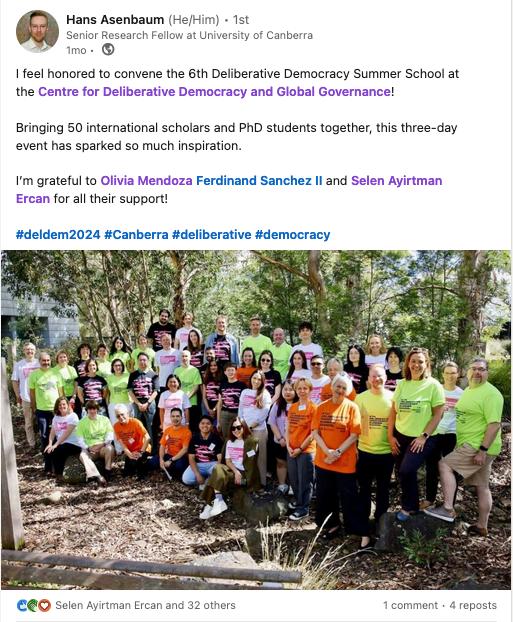
In the summer school, the intellectual exchanges were interlaced with exciting opportunities to connect with scholars from different parts of the globe, have a chat during break times, or simply enjoy the natural beauty of the “Bush Capital”. Participants explored the Museum of Australian Democracy on a guided tour before the conference dinner at the Courtyard of the Old Parliament House. Capping off their visit to Australia, participants dived into the heart of Canberra’s wildlife at the Tidbinbilla Nature Park!
This year, the Centre for Deliberative Democracy and Global Governance is celebrating 10 years at the University of Canberra. At the anniversary celebration, John Dryzek, Simon Niemeyer, and visiting PhD student Maria Fernanda Diaz Vidal gave a toast to the Centre’s achievements.






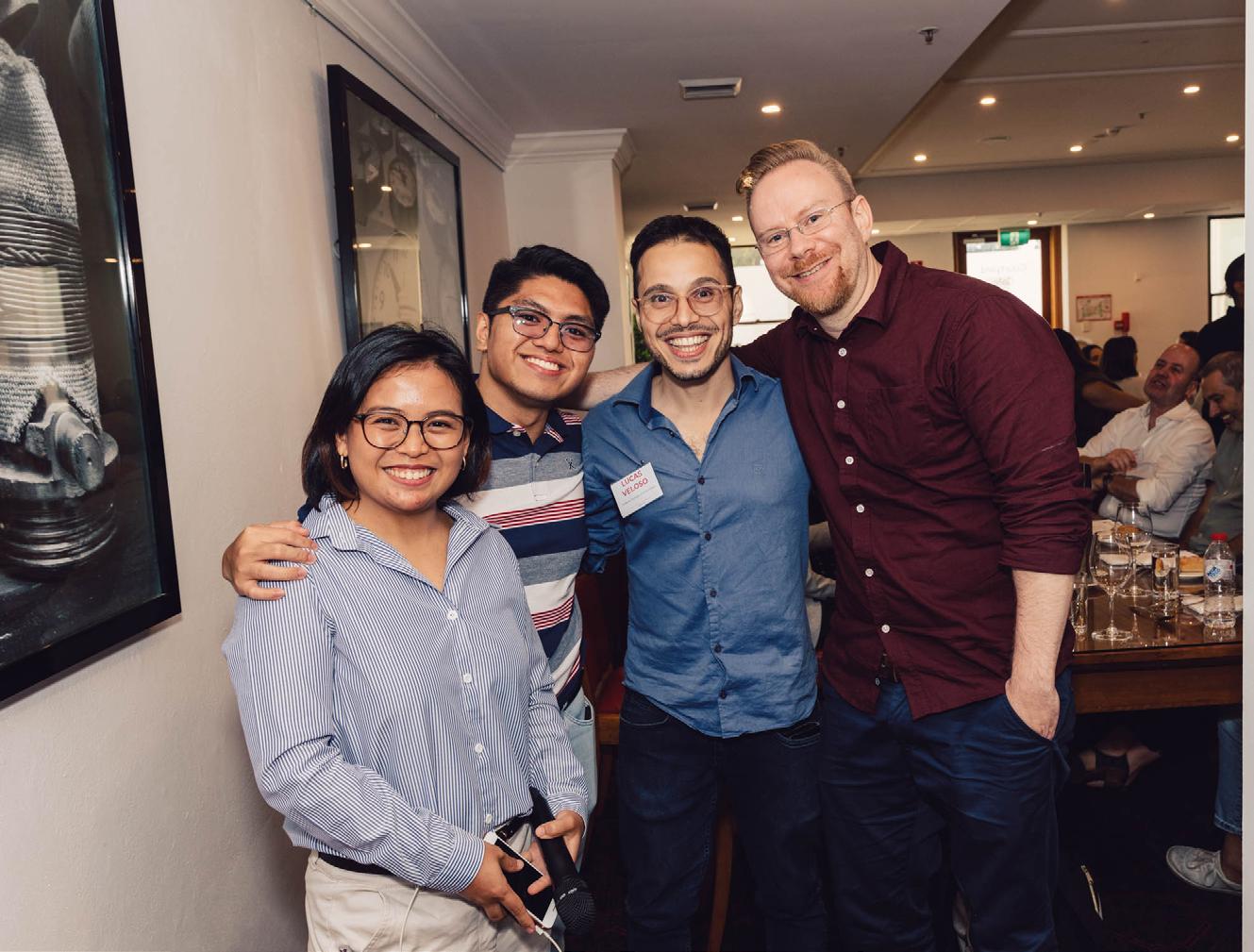


















Scan the QR Code or click this link to watch the recap of the 2024 Deliberative Democracy Summer School:


www.linkedin.com/company/centre-fordeliberative-democracy-and-global-governance/